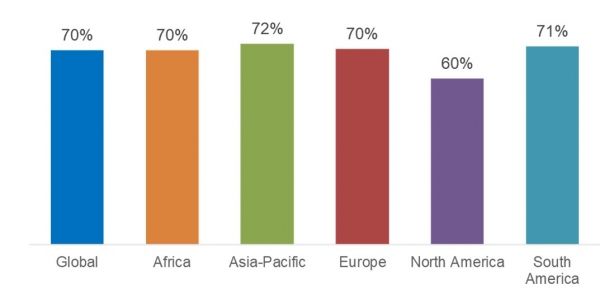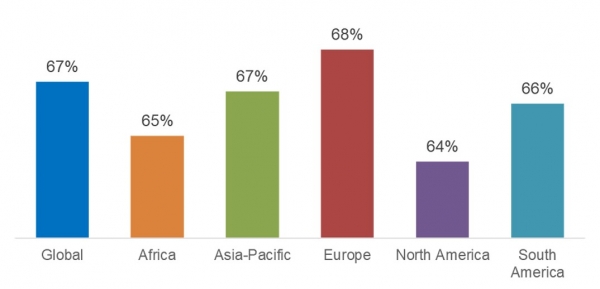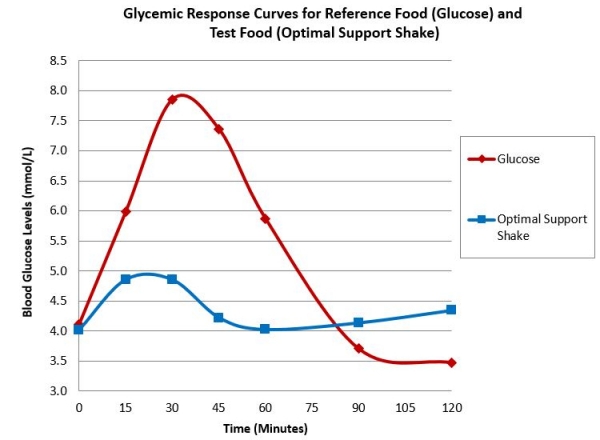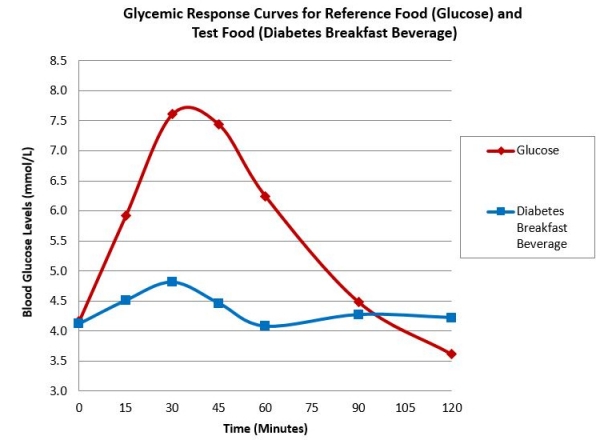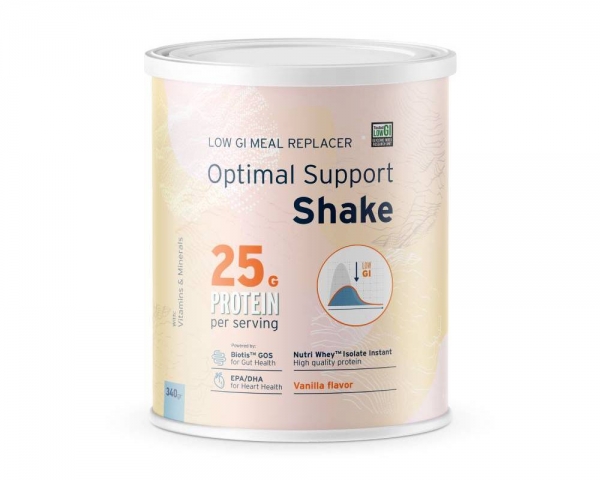Promotional Features
Managing diabetes with dairy protein based functional foods
The growing diabetes epidemic Growing Diabetes Epidemic in Asia
The number of adults living with diabetes worldwide has more than tripled over the last 20 years, making it one of the fastest growing health challenges of our generation. In 2019 alone, 9.3% of adults in the world aged between 20 – 79 were recorded as having diabetes. Aging populations, increased urbanisation and associated lifestyle changes are key factors behind the increase¹.
Diabetes is traditionally classified into two main types: Type 1 and Type 2. Type 1 diabetes is an autoimmune disorder in which the immune system destroys the insulin-producing cells in the pancreas. 90% of diabetes patients, however, suffer from Type 2 diabetes, where cells in the body become unable to properly process and convert blood glucose to energy, a condition known as insulin resistance.
Fig 1. Global Diabetes Data Report 2010 – 2045, International Diabetes Federation1
The number of people living with Type 2 diabetes in Asia is projected to rise by 74% between 2019 to 2045. In addition to India and China, the number has peaked sharply in South-East Asia, where it is predicted that over 153 million adults in the region will be living with the disease by 2045 (see Figure 1).
Trends in food and drink for diabetes management Food & Drink for Diabetes Management
There is growing awareness of diabetes being a lifestyle-related health issue2. This trend is most prominent in APAC, where 72% of consumers recognise the link between diet and diabetes, a higher figure than the global average (see Figure 2). This trend will lead many to reassess their eating and drinking habits due to concerns over the risk of immediate and long-term health problems.
Fig. 2 – The proportion of consumers who recognise the link between diet and diabetes2
Fig. 3 – Proportion of consumers who say that they are interested in food and drink products positioned around reducing the risk of diabetes2
This, in turn, led to a growing interest in food and drink positioned around reducing the risk of diabetes, which sees consumers proactively seeking out functional products aimed at addressing the issue. As seen in Figure 3, the proportion of such consumers is 67% in APAC, which is the second highest in the world after Europe.
Managing blood glucose with dairy proteins Blood Glucose with Dairy Proteins
To manage blood glucose, Type 2 diabetes patients are looking for food products that do not cause high levels of glucose levels after consumption. The food matrix, the amount and different types of carbohydrates, proteins and fat of the products have different effects on postprandial blood glucose. The food products can be ranked by their overall effect on blood glucose levels using the Glycaemic Index (GI). As such, a low-GI diet can contribute to improved glycaemic control, fasting blood glucose control and blood lipids in diabetes patients without leading to hypoglycaemic events.
The consumption of carbohydrates with proteins, specifically dairy proteins, results in a lower glycaemic response as compared to consuming carbohydrates alone3. Furthermore, a higher intake of dairy proteins has consistently shown to have a beneficial effect on blood glucose control in Type 2 diabetes patients. Research has shown that dairy proteins such as casein and whey can stimulate postprandial insulin responses, thereby increasing blood glucose disposal and lowering the postprandial rise in blood glucose concentration4. The insulinotropic effect of dairy proteins thus helps to lower the GI and control blood glucose levels.
Dairy protein based functional foods from FrieslandCampina Ingredients
In line with the growing interest in functional foods for diabetes management in APAC, FrieslandCampina Ingredients has developed two prototypes with dairy proteins as active ingredients – the Optimal Support Shake, a powder format based on 25g dairy protein and the Breakfast Beverage, a Ready-to-Drink concept with 15g dairy protein. Both products have undergone in vivo Glycemic Index testing at the accredited Glycemic Index Research Unit at Temasek Polytechnic based in Singapore. The testing results showed that the Optimal Support Shake recorded a GI of 215 (Fig 4) and the Breakfast Beverage, a GI of 156 (Fig 5), officially certifying them as having a low GI (< 55). This indicates that food products based on dairy proteins can be an integral part of an effective nutritional strategy for the management of Type 2 diabetes.
Fig. 4 – Graph showing the GI test results of the Optimal Support Shake
Fig. 5 – Graph showing the GI test results of the Breakfast Beverage
Optimal Support Shake (powered by Nutri WheyTM Isolate Instant)
People on a low GI diet can get (a part of) their required daily intake of essential nutrients and proteins from meal replacements. Dairy- based proteins, such as whey protein in particular, have been shown to improve insulin sensitivity and glycemic control in older Type 2 diabetes patients, especially when used in combination with physical exercise7.
Fortified with Nutri WheyTM Isolate Instant, a high-quality whey protein shown to increase the insulin secretion8, the Optimal Support Shake is a meal replacement powder that is both nutritious and easy-to-prepare. Utilising proprietary state-of-the-art filtration technology and gentle heat treatment, Nutri WheyTM Isolate Instant exhibits a consistent, clean taste and aroma, and is cold water soluble with excellent dispersion properties.
Breakfast Beverage (powered by Excellion® Magnesium Caseinate)
A protein-rich start to the day is best for supporting muscle maintenance after a period of fasting during sleep9. Skeletal muscle has a fundamentally important role in glucose management 10. However, with today’s consumers leading busy and active lifestyles, breakfast is often consumed on-the-go. This can make it a challenge to start the day with a portion with portion of high-quality protein.
Enriched with Excellion® Magnesium Caseinate, the Breakfast Beverage is a delicious Ready-to-Drink concept that can be conveniently consumed on-the-go. Excellion® Magnesium Caseinate contains casein protein and magnesium. Casein protein has been shown to increase post-meal insulin response and lower the rise in postprandial blood glucose concentration4. In addition, magnesium supplementation has been shown to improve glucose and insulin levels in people with type 2 diabetes11. Compared to magnesium salts, Excellion® Magnesium Caseinate has a lower sedimentation risk for minimal taste impact. It also has excellent heat stability, enabling manufacturers to produce RTD beverages with an extended shelf life.
Consumer driven dairy protein solutionsDriven Dairy Protein Solutions
Despite the growing number of people diagnosed with Type 2 diabetes in Asia, specialised nutrition, together with lifestyle changes, can help in managing the condition and its associated risks. While individuals with Type 2 diabetes may find it a challenge to manage their condition, today’s cutting-edge formulations have enabled the development of convenient and tasty dairy protein based products that are an integral part of a low-GI diet. To learn more about diabetes solutions from FrieslandCampina Ingredients, visit https://www.frieslandcampinaingredients.com/fci-diabetes/
References
- International Diabetes Federation, IDF Diabetes Atlas. 9th edition. 2019.
- FMCG Gurus, 2021.
- Manders RJF, Hansen D, Zorenc AHG, Dendale P, Kloek J, Saris WHM, et al. Protein co-ingestion strongly increases postprandial insulin secretion in type 2 diabetes patients. J Med Food. 2014 Jul 1;17(7):758–63
- Pasin G, Comerford KB. Dairy Foods and Dairy Proteins in the Management of Type 2 Diabetes: A Systematic Review of the Clinical Evidence. Adv Nutr. 2015;6(3):245–59.
- Glycemic Index Research Unit, Temasek Polytechnic, In-Vivo Glycemic Index Determination of Optimal Support Shake (G21-08E), 2021
- Glycemic Index Research Unit, Temasek Polytechnic, In-Vivo Glycemic Index Determination of Diabetes Breakfast Beverage (G21-32E), 2021
- Memelink, et al, Effect of an Enriched Protein Drink on Muscle Mass and Glycemic Control during Combined Lifestyle Intervention in Older Adults with Obesity and Type 2 Diabetes: A Double-Blind RCT. Nutrients 2020 Dec 28;13(1):64
- Verlaan et al., Protein digestion profiles of compacted nutritional drinks providing different protein blends and energy densities in older adults. ESPEN 2021 SUN-LB033
- Paddon-Jones D and Rasmussen BB 2009. Dietary protein recommendations and the prevention of sarcopenia
- Shepherd PR, Kahn BB. 1999. Glucose transporters and insulin action--implications for insulin resistance and diabetes mellitus
- Song Y, He K, Levitan EB, Manson JE, Liu S.Effects of oral magnesium supplementation on glycaemic control in Type 2 diabetes: a meta-analysis of randomized double-blind controlled trials. DiabetMed 2006;23:1050–1056



